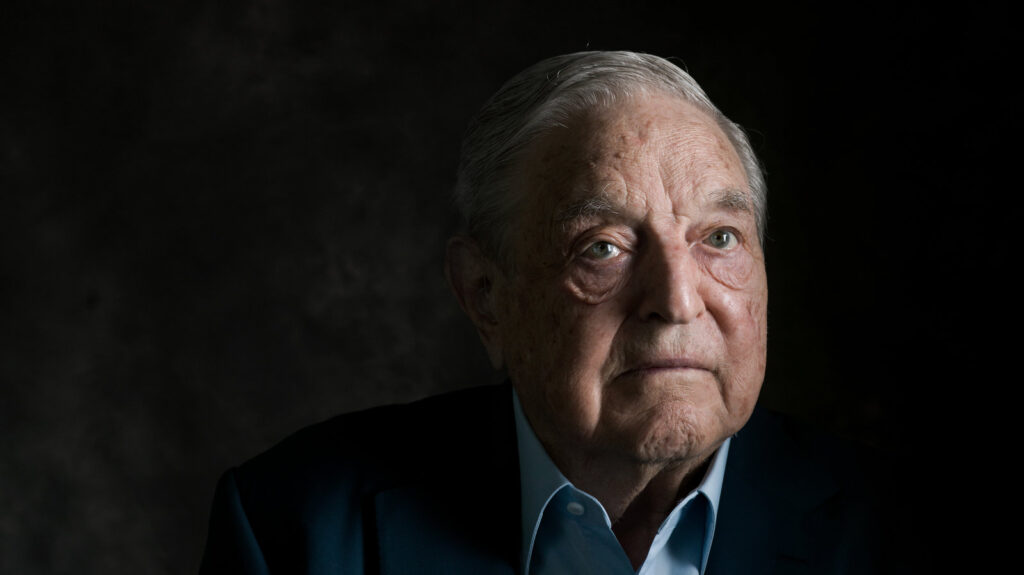NGOs fear funding cuts threaten defence of liberal values in EU
Open Society Foundations’ planned shift was detailed in an internal email seen by the Financial Times. It unnerved political observers and civil society groups that have used funding to counter illiberal policies in central and eastern Europe, including Hungary.
“The new approved strategic direction provides for withdrawal and termination of large parts of our current work within the European Union, shifting our focus and allocation of resources to other parts of the world,” OSF wrote.
Given that EU institutions and governments were “already allocating significant resources to human rights, freedom, and pluralism”, OSF would “focus on Europe only in the context of its role in large global issues”.
“Work internal to Europe will be extremely limited,” the email added.
The move comes after the Hungarian-born 93-year-old investor in December handed over the reins of his global organisation to his son Alex Soros. In June, OSF announced a 40 per cent staff reduction.
“The Open Society Foundations is changing the way we work, but my family and OSF have long supported, and remain steadfastly committed to the European project,” Alex Soros told the FT in an emailed statement.
A Holocaust survivor who made his fortune as an investor in the US and shorted the British pound in 1992, making about $1bn, George Soros donated more than $32bn of his personal fortune to fund projects that promoted democracy and human rights between 1984 and 2017.
One of the most vocal opponents of Soros has been Hungarian prime minister Viktor Orbán, a onetime protégé of the financier who has turned against him and claimed he forced a liberal ideology and mass immigration on to reluctant Europeans.
Orbán’s government in 2018 forced the Soros-founded Central European University, a top-ranked college, to relocate to Vienna, claiming it did not fulfil local laws, such as requiring universities to have undergraduate programmes. CEU was a graduate-only institution.
But Soros-founded NGOs continued to operate in Hungary. The prime minister’s political director Balázs Orbán, no relation, claimed in a Facebook post that “the occupying forces only really leave when the last Soros soldier leaves Europe and Hungary. We are still far from that”.
OSF said in a statement that the switch was “part of a broader change in the organisation, as we introduce a new operating model that includes a global review of how we work to support democracy, human rights, and climate justice”.
“We will continue to fund civil society groups across Europe, including . . . on EU external affairs and will maintain our historic support for European Roma communities.”
Michiel van Hulten, EU director at Transparency International, said OSF was instrumental to European civil society. TI has received about a quarter of its annual finding from OSF.
“Arguably no organisation has done more to strengthen the role of European civil society in the last 30 years than OSF, starting with its groundbreaking work in central and eastern Europe after the fall of communism,” van Hulten told the FT.
“An abrupt departure from Europe at a time when political populism is on the rise and the rule of law is increasingly under threat seems counterintuitive and would risk undoing much of the progress that has been achieved.”
Alberto Alemanno, professor of EU law at HEC Paris, said on the social platform X that with EU elections due in June next year the OSF decision “couldn’t come at worse time for European integration and its civil society . . . Conservative [and] religious right’s philanthropy is ready to fill the gap”.
NGOs were lobbying the OSF leadership to reverse course or at least scale back the planned cuts, said a person familiar with the matter.
The organisation, which distributes about $1.5bn a year globally, will continue to fund programmes in non-EU countries of Europe such as Ukraine, Moldova, Kyrgyzstan, and the western Balkans, an OSF said.
Source: Financial Times


